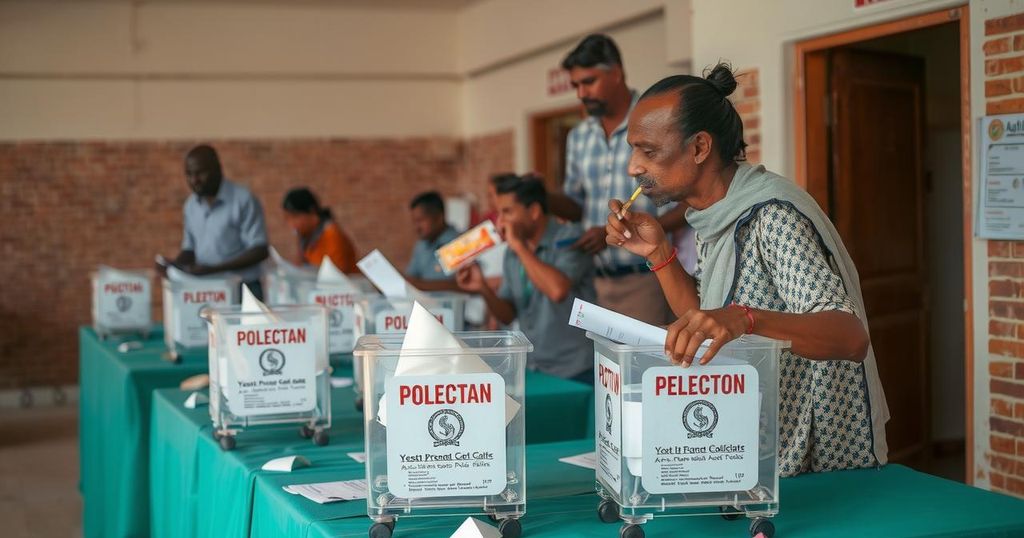Voting Begins in Chad’s Contentious Parliamentary Election Amid Boycott Calls
Chad is conducting its first parliamentary election in 13 years amidst opposition boycotts and allegations of predetermined results favoring the ruling party. While the government claims this election marks a step toward democracy, low voter turnout, particularly in urban areas, highlights widespread distrust in the electoral process. Continuing instability from threats such as Boko Haram adds to the complex context surrounding these elections.
Voting has commenced in Chad’s first parliamentary election since 2010, amidst claims of a government-led effort to suppress genuine democratic processes. This election, intended to establish a new parliament, provincial assemblies, and local councils, occurs after a military takeover in 2021 following the death of President Idriss Deby. Opposition parties have urged citizens to boycott the elections, alleging predetermined results favoring President Mahamat Idriss Deby Itno, who has not garnered legitimacy due to allegations of election fraud. Initial reports indicate low voter turnout in the capital, N’Djamena, which election officials attributed to cold weather, although the opposition argues it stems from widespread apathy toward the elections.
Chad, one of the world’s least economically developed nations, has been under military governance since the 2021 death of long-serving leader Idriss Deby. This parliamentary election is seen as vital for the restoration of civilian rule, yet significant opposition parties have declared a boycott, casting doubt on the election’s integrity. The opposition claims the electoral process has been manipulated to favor the ruling party, resulting in a lack of trust among the electorate and low engagement during the voting process. Additionally, ongoing national security challenges, including threats from Boko Haram, loom over the election’s proceedings.
In summary, Chad’s parliamentary election unfolds under significant scrutiny due to opposition boycotts and accusations of electoral manipulation. While the government presents the election as a critical move towards democracy, confidence among citizens is markedly low, demonstrated by lackluster turnout, particularly in urban centers. The outcome remains uncertain, but the election underscores the ongoing struggle for democratic governance in Chad amidst military influence and societal unrest.
Original Source: www.aljazeera.com




Post Comment